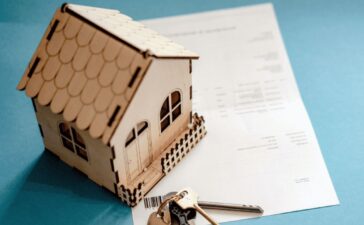Tips to make the most out of your project
Although mobile homes have been around since the development of motorized highway travel, the modern mobile home came about after World War II. Returning veterans and an upwardly mobile society created conditions that made inexpensive housing a necessity, while being able to move it – even with difficulty – made mobile homes the choice for families who were trying to create a better life for themselves without the geographical permanence that a more expensive frame home would necessitate.
These days, mobile homes are looked at, primarily, as an inexpensive alternative to traditional framed homes. The mobility of many of these homes has been permanently removed and, although all mobile homes built since 1976 are required to satisfy FHA certifications, they are not usually considered a sound investment due to rapid depreciation and difficulty in using them as collateral.
However, there are various kinds of investments and because of the depreciation factor of mobile homes, buyers can find them for much less than the cost of a traditional frame home, making them a worthwhile alternative to leasing an apartment or overextending their credit while buying a traditional home. Mobile homes have a lot to offer savvy buyers if they have a plan for buying, renovating, living in and selling their mobile home.
Buying a mobile home
Whether you are buying a new or used mobile home, there are several unique challenges to finding a good deal. Traditional mortgages can be difficult to find unless you go through the VA, FHA or Fannie Mae. For used mobile homes, the process becomes even more difficult as the depreciation value of the mobile home is even lower.
Inspecting a mobile home can also be difficult since they are built to different (lighter) standards than traditional framed homes or modular homes. Complete renovations and remodeling of mobile homes is usually unnecessary, fixing any structural problems, updating and renovating the interior, plumbing and electrical issues can be done for less and will generally be cost effective.
Repairs with a purpose
Since most people who are looking at buying mobile homes are looking for a deal, doing a complete makeover of a mobile home will not be cost effective. If you are looking to live in a mobile home, however, the amount you spend on renovations has less to do with the resale value than your livability and costs will have to be reconsidered.
Once you have determined the costs of the repairs, create a plan to complete them. Although diving into the work with a crowbar and a sledgehammer can be momentarily satisfying, a little planning will keep your repairs on track while preventing damage to still good systems. Your primary goal is to finish the repairs as inexpensively as possible, adding to them is counterproductive. If the repairs exceed your budget, then find out how to sell used mobile homes fast.
Concluding thoughts
Keep in mind that renovating a mobile home also includes the property it is sitting on. Unless you are planning to move it, cleaning up and landscaping must be factored into the repair costs. Junk removal services may have to be called to clean up the property after you have finished your renovations.
It doesn’t matter whether your ultimate goal is flipping a mobile home and making a little cash or creating a home you would be happy to live in for thirty or forty years, you want to do the best job you can while staying inside your budget. Like every other project, renovating a mobile home can quickly get out of hand and end up costing more than it is worth if you are not careful. As always, plan your work and, then, work your plan.






